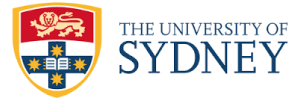Genomic Cancer Medicine Program
The Genomic Cancer Medicine Program will use genomic information in novel ways to understand further the genetic contribution to cancer risk and identify new therapeutic opportunities for individual patients, with a view to improving outcomes in families affected by cancer.
The program is led by Professor David Thomas and is comprised of two major projects:
- Cancer Molecular Screening and Therapeutics (MoST) Program - Led by Dr Dominique Hess
- Genetic Cancer Risk in the Young Study (Cancer Risk Study) - Led by Dr Mandy Ballinger
Participants for both projects of the Genomic Cancer Medicine program are now being recruited from The Kinghorn Cancer Centre. Recruitment from the Chris O’Brien Lifehouse is anticipated to start in early 2017.
Recent advances in genomic technology have created the opportunity to identify the genetic changes that drive cancer growth. Molecular information from tumours can be used to match individual patients with targeted treatments, personalising the cancer treatment of patients. However, the translation of molecular information into improved health outcomes has not kept pace with scientific discovery. This is particularly the case for patients with rare or neglected cancers, which account for over 30% of all cancer deaths. Innovations in clinical trial design are needed to accelerate the therapeutic translation of genomic opportunities.
The MoST program will evaluate a new approach for testing the activity of drugs for the treatment of advanced cancer, with the overall goal of accelerating the clinical development of novel treatments. Up to 1000 patients with no further standard treatment options will be recruited over four years. The program will be open to patients with advanced cancer of any histologic type, but with a particular focus on rare or neglected cancers.
The two key components to the MoST program are:
- A molecular screening platform incorporating genomics and other molecular assays to find clinically actionable variants; and multiple clinical substudies for novel molecularly targeted treatments. We anticipate that the findings from this program will inform future models for personalised medicine and more efficient and successful evaluation of new drugs.
- The MoST program builds on partnerships between academic research, the public health sector and the pharmaceutical industry. This program is a collaboration between the Garvan Institute of Medical Research, the NHMRC Clinical Trials Centre and Sydney Catalyst – University of Sydney, and the Molecular Diagnostic Oncology Laboratory at the Peter MacCallum Cancer Centre.
The program is led by Dr Dominique Hess.
Cancer risk is not evenly distributed in the community. Up to 50% of cancer risk is thought to be genetic (heritable), varying by cancer type. It is likely that early-onset cancers have a greater likelihood of heritable origins. A large proportion of cancer risk is still unknown. Further understanding about the inherited genetic alterations that cause cancer may lead to:
- more personalised cancer treatments with better outcomes;
- improved cancer screening;
- increased options for reducing cancer risks; and more fully informed lifestyle and reproductive decisions.
- This study will use whole genome sequencing to investigate and understand further the genetic contributionto developing cancer.
The cohort will be made up of 1000 young individuals diagnosed with cancer aged 16-40 years as well as people with multiple cancers at any age. Family members will also be invited to participate. Individuals who carry genetic variants important to their health and potentially the health of family members will be offered genetic counselling and tailored clinical risk management. The risk management will also be evaluated. Some of these individuals may be referred to the MoST program.
General knowledge and attitudes towards genomic screening in this population will be investigated. The data collected from this cohort of individuals with early-onset cancer will be used to generate an ongoing resource for research.
The study is led by Dr Mandy Ballinger.


 SYDNEY GENOMICS COLLABORATIVE
SYDNEY GENOMICS COLLABORATIVE